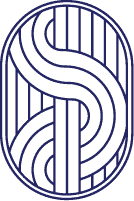The review
Following an external review of the regulation of medical practitioners who perform cosmetic surgery, the Australian Health Practitioner Regulation Agency (Ahpra) and the Medical Board of Australia (the Medical Board) have now released the final report resulting from the review, which makes a number of recommendations to improve patient safety.
Ahpra and the Medical Board have accepted the recommendations and have confirmed that they will soon update and enforce advertising restrictions.
What was recommended in relation to the use of influencers?
A total of 16 recommendations to improve patient safety in the cosmetic surgery industry were set out in the report. Particularly relevant to influencer marketing, was a recommendation that the Guidelines for advertising a regulated health service (“Advertising Guidelines”) be revised and / or additional material specifically about cosmetic surgery be produced to clarify the standards expected of practitioners, including to avoid the promotion of procedures using social media influencers.
Also relevant in the context of social media content was the recommendation that the relevant guidelines limit the filming and use of content that shows surgical procedures to educational purposes only and not for entertainment.
Further recommended issues set out in the final report for inclusion in the relevant advertising guidelines include:
- avoiding the glamorisation and trivialisation of procedures including the downplaying of risk;
- avoiding the use of images of models who have not undergone a cosmetic procedures to promote a cosmetic procedure;
- avoiding the use of content that implies cosmetic surgery should be utilised to obtain an acceptable/ideal body type;
- promoting the use of disclaimers;
- limiting benefit statements to those that are objectively demonstrable/provable (that is, the physical changes – not claimed psychological or social benefit);
- strengthening procedures for informed consent on the use of and storage of patients’ before and after photos; and
- preventing the targeting of young or otherwise vulnerable groups with advertising (including through algorithms and other marketing technology).
The report also included a recommendation that Ahpra and the Medical Board consider the use of technology to assist in the monitoring and auditing of advertising in the cosmetic surgery sector.
What should you do now?
If you’re operating a regulated health service (particularly one that provides cosmetic surgery procedures), now is the time to seek advice on your use of social media, as the advertising requirements are currently undergoing a regulatory overhaul.
The relevant laws, guidelines and law reform
Law reform to significantly increase the penalties for a breach of the relevant advertising laws in relation to regulated health services is currently underway. If the Health Practitioner Regulation National Law and Other Legislation Amendment Bill 2022 (“the Bill”) is passed, the maximum penalty for breaches of section 133 of the Health Practitioner Regulation National Law (being the relevant section that deals with advertising) are set to increase from $5,000 to $60,000 for an individual and from $10,000 to $120,000 for a body corporate.
Under the current section 133 of the Health Practitioner Regulation National Law, a person must not advertise a regulated health service, or a business that provides a regulated health service, in a way that–
a) is false, misleading or deceptive or is likely to be misleading or deceptive; or
b) offers a gift, discount or other inducement to attract a person to use the service or the business, unless the advertisement also states the terms and conditions of the offer; or
c) uses testimonials or purported testimonials about the service or business; or
d) creates an unreasonable expectation of beneficial treatment; or
e) directly or indirectly encourages the indiscriminate or unnecessary use of regulated health services.
In proceedings for an offence against section 133, a court may have regard to guidelines approved by a National Board about the advertising of regulated health services. Therefore any updates to the Advertising Guidelines should be carefully considered in the context of your advertising compliance.
Interestingly enough, the Bill also proposes to remove the existing prohibition set out in section 133(c), in relation to using testimonials to advertise regulated health services, but the commencement of that provision has been delayed pending the outcome of the independent review. It also inserts an additional definition into section 133 to clarify that advertise includes using a testimonial. Accordingly, using a testimonial which is found to be misleading for example, to advertise a regulated health service would breach section 133.
It’s also important to note that the existing Medical Board of Australia Guidelines for Registered Medical Practitioners who perform cosmetic medical and surgical procedures also requires that advertising content and patient information material should not:
- glamorise procedures;
- minimise the complexity of a procedure;
- overstate results; or
- imply patients can achieve outcomes that are not realistic.
Are the changes likely to apply to other regulated health services?
Whilst the independent review considered cosmetic surgery procedures specifically (such as breast implants, tummy tucks, rhinoplasty, surgical face lifts and liposuction), we are yet to see how the recommendations will actually be implemented within the relevant advertising guidelines, and whether this will have a more far reaching effect to other regulated health services, especially cosmetic treatments which fell outside of the scope of the independent review, such as cosmetic injectables, laser skin treatments, dermabrasion and fat freezing.
For more information about meeting your legal requirements when advertising your regulated health service, contact us.
Information contained within this blog post is intended to be general information only and is not in any way intended to constitute legal advice. You should not act or rely on any information found in this blog post without obtaining prior advice specific to your circumstances.




